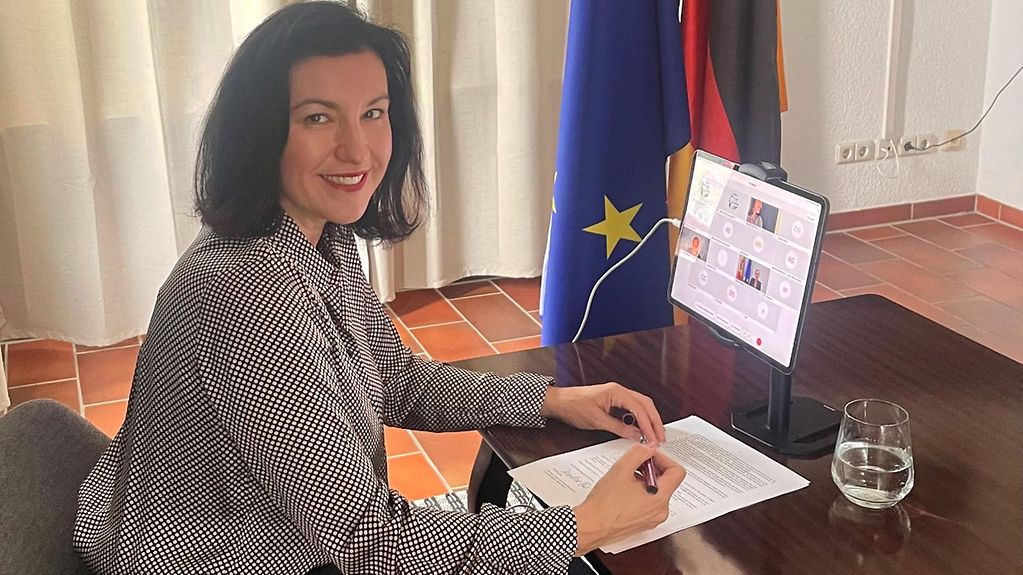Digital identity ecosystem
Germany and Spain have agreed to cooperate on building an ecosystem of digital identities across borders. "We are pleased to take the next step through our partnership with Spain to show the whole of Europe the potential of user-centric, decentralised identities“, emphasised Minister of State Dorothee Bär.
2 min reading time

Minister of State Bär signed the joint declaration: Germany and Spain are working together in the area of digital identities.
Photo: Luca Macke
The Federal Government recognises that digital identity is a fundamental building block for successful digitisation. It is therefore pursuing the development of an infrastructure that allows the secure exchange of attributes, is suitable for Europe-wide use, and functions equally for identities of people, institutions, and things. The basis is the self-sovereign Identity (SSI) technology.
Showing Europe the potential of digital identities
Germany already has a national SSI-based digital identity ecosystem that now involves more than 60 stakeholders from the private and public sectors. With the digital hotel check-in, there is already a live use case. In the coming months, the German government plans to implement further national use cases.
Germany and Spain are now joining forces to work on a cross-border, decentralised ecosystem for digital identities. Through the signing of a joint declaration, both countries have committed to a close collaboration. For Germany, Minister of State for Digitisation Dorothee Bär signed the declaration with Spain and commented: "Through our partnership with Spain, we are pleased to take the next step in showing the whole of Europe the potential of user-centric, decentralised identities“.
German-Spanish pilot project
The joint declaration between Germany and Spain PDF, 115 KB, not barrier-free foresees the design and conceptualization of a cross-border pilot to be implemented in the near future. Both countries will also exchange information and best practices in the area of self-sovereign identity (SSI) at the technical, regulatory, and operational levels. The findings from the pilot project are to be incorporated into the further development of the European Framework for Digital Identity. Other European Member States who share the same vision of an EU-wide digital identity ecosystem are welcomed to join.
Citizens always at the heart of the European approach
With the joint declaration, Germany and Spain are developing an ambitious vision of digital identity at national and European level. They are guided by the European approach to digitisation, which puts people at the centre and is based on common European principles and values. Digital identity should enable citizens in Europe to securely share their own identity data under their exclusive control. This, in turn, is the basis for the provision of digital services in the public and private spheres.
"Citizens should be able to have control over their data and their identity. The cooperation we are starting today with Germany on a self-sovereign digital identity is another step on the European path towards data sovereignty" said Carme Artigas, Secretary of State for Digitalisation and Artificial Intelligence in Spain.
How an ecosystem of digital identities can contribute to a self-sovereign and at the same time user-friendly handling of the digital self can be read in an introductory presentation PDF, 3 MB, not barrier-free .